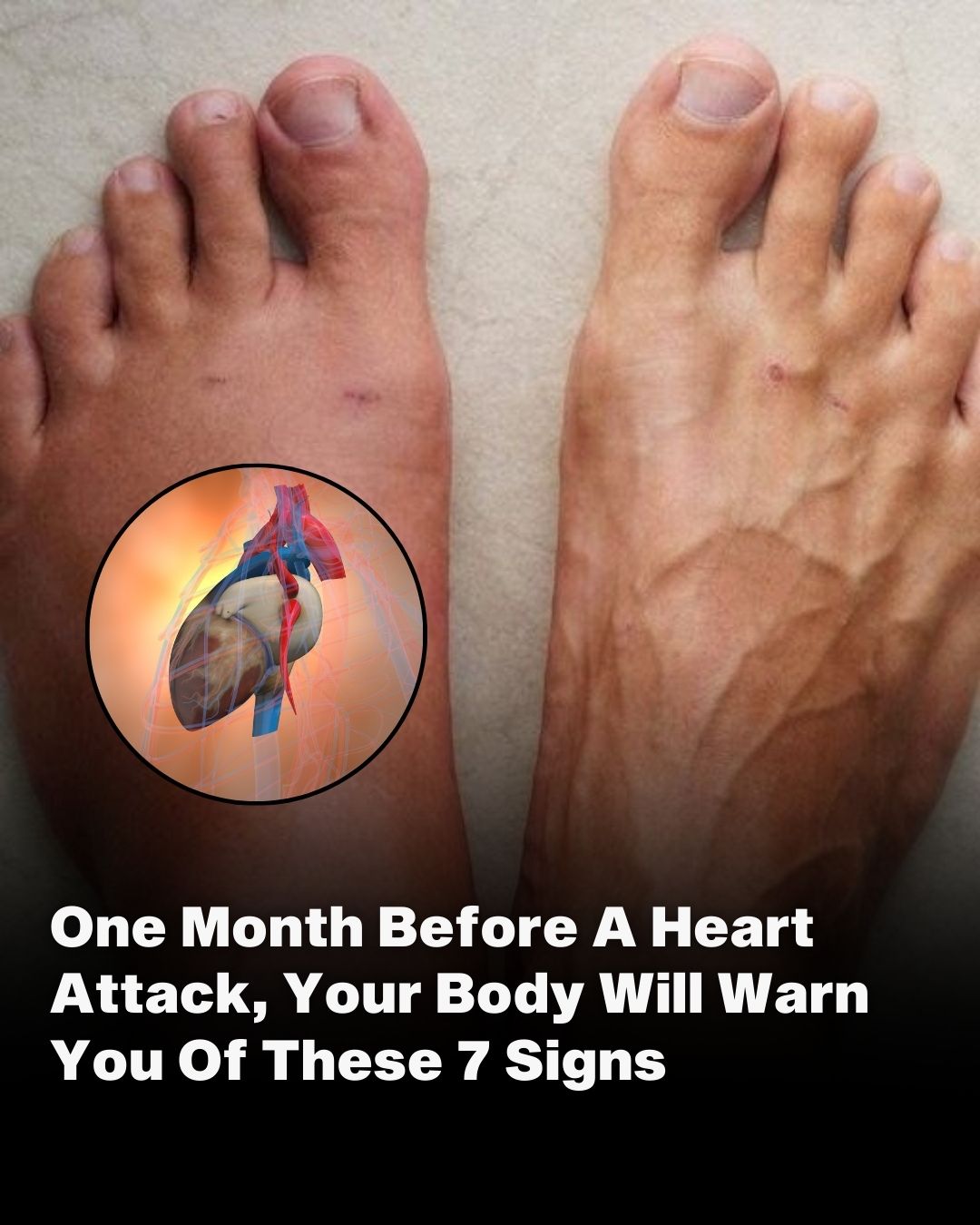One Month Before a Heart Attack, Your Body Will Warn You of These 7 Signs
Heart attacks are one of the leading causes of death worldwide, but many people don’t realize that the body often gives warning signs well in advance.
Recognizing these symptoms early could save your life. Here are seven warning signs that can appear up to a month before a heart attack.
1. Chest Discomfort
This is the most common sign of an impending heart attack. It might feel like pressure, fullness, squeezing, or pain in the chest. It can occur during physical activity or even while at rest. If this discomfort lasts more than a few minutes or comes and goes, don’t ignore it—seek medical attention immediately.
2. Shortness of Breath
If you find yourself feeling out of breath without any physical exertion, it could be a sign of a heart problem. This occurs because your heart is struggling to pump blood effectively, which affects the oxygen supply to your lungs.
3. Unusual Fatigue
Feeling unusually tired or exhausted, even after simple tasks, could be a warning sign. This type of fatigue is different from regular tiredness and can occur without any obvious reason. It is more common in women and may appear weeks before a heart attack.
4. Dizziness or Lightheadedness
Frequent dizziness or feeling lightheaded can indicate poor blood flow to the brain due to heart issues. If this happens alongside chest discomfort or shortness of breath, seek medical help right away.
5. Nausea or Indigestion
Many people experience stomach pain, nausea, or indigestion before a heart attack, especially women. It may feel like heartburn, but if it persists or worsens, don’t brush it off as just a digestive issue.
6. Pain in Other Areas
Heart attack pain isn’t limited to the chest. It can radiate to the shoulders, arms, back, neck, jaw, or even teeth. Pain in the left arm is more common, but it can occur on either side.
7. Cold Sweats
Breaking out in a cold sweat, especially without physical activity, can be a sign of stress on the heart. It is often accompanied by other symptoms like dizziness or chest discomfort.
What to Do If You Notice These Symptoms
If you or someone you know is experiencing one or more of these symptoms, don’t ignore them. Seek medical attention immediately. It’s better to be cautious and get checked by a healthcare professional.
Prevention Tips
To reduce the risk of a heart attack:
Maintain a healthy diet and exercise regularly.
Avoid smoking and limit alcohol intake.
Manage stress and get regular health check-ups.
Conclusion
Heart attacks often come with warning signs weeks before they occur. Recognizing and acting on these signs can save lives. Don’t wait for the symptoms to worsen. Get help early and protect your heart.
